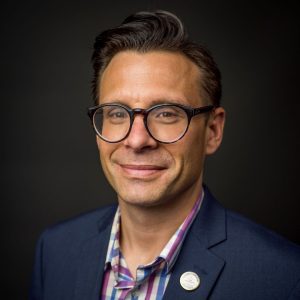I am a big advocate for face-to-face Bible study. Sharing deeply with each other as we contemplate the truths of Scripture meets the needs of group members in a way that is difficult to duplicate on social media. Still, in these weeks in which the Coronavirus has us staying at home, how does a Bible teacher create opportunities for their group members to experience the Word of God in a profound and personal way? Whether you teach youth or Senior adults, social media may provide a good alternative. A lot of tools are available for doing online Bible study, but Facebook is an easy one. Plus, many of your class members are likely already using it.
Let me make some suggestions as to how to plan your Bible study.
Build a Group Page for your class.
This is actually really easy. Just go to the “Create” button at the top of your Facebook page, click on it, and choose “Group.” You might want to make your Group private unless you want others outside your Bible study group to join as well. It will let you customize the Group with photos and other things. If you have a cool picture of your Bible study group, add it to the top of the page. Invite your group members to join the Group. (If you have group members who are not on Facebook, send them an invitation to join. Facebook is not for everyone, but this Bible study may be a good reason for them to build a free page.)
View your Bible study more as a process than an event.
Actually, this could be a real advantage to your Bible study. We often want our group members to read and reflect on the passage before they come to church. We want them to continue to practice (or at least contemplate) the truth of the passage after the study. Facebook may give you a good opportunity to encourage those practices.
Think of several ways to engage your group with the content of the page. Schedule them over the course of the week. Here are some of my ideas:
Find a video that addresses the content in a humorous way.
You can share almost any video from YouTube by clicking “Share” on the video, copying a link, and then pasting it to your Group page. I like humorous videos that might get learners wondering how it relates to the Bible study for the week. Facebook will let you schedule a “Watch Party” if you want everyone to watch it together. You can even use your webcam or phone camera to add commentary or ask a question as the clip ends. Leave group members with a question to respond to after they have watched the video.
Write a brief introduction to the Bible passage.
You can post the intro to the Group page. Tell group members to read the passage and then answer a question or two about it. Focus your questions on the content of the passage. Ask them to recall what it said. If you want, record this on video, then ask them to answer a question in the comments below. You can record the video directly on Facebook. Don’t worry about making the video perfect. Your group will appreciate you being you.
Schedule a time for a live Bible study.
You can set up an event in the events tab and send out an announcement to your group. Then, click on Live Video to set up your streaming. You will need to allow Facebook to access your webcam and mic. Plan to share your thoughts about the passage in about fifteen minutes. As you begin, encourage members to write in questions, observations, and thoughts as you are speaking. You can stop to address them as they write them, or wait until you finish. Ask a few questions about the study, and ask members to enter their responses. Try to end the live session while group members are still engaged. Fifteen to thirty minutes in which everyone is interested is much better than an hour where people start to drift.
Create some follow-up questions on the Discussion tab of your Group.
Encourage class members to add their thoughts to the discussion. Invite them to post a brief video sharing how they are putting the truths from the lesson into practice.
Of course, these are just my ideas. Facebook gives you a lot of different tools you can use, so play around with how to best engage your class. Do whatever helps your group members think deeply about the lesson on their own and discuss it with others in the group. You may find that your Facebook Group will become an important part of your Bible study even after COVID-19.
Read More

Hope in Suffering
Gateway student Matt Bodden is an evangelist who is ready to answer the question of suffering with the gospel.

The Gateway Journal of Theology Inaugural Issue
Read all new articles in the inaugural issue of The Gateway Journal of Theology.
Listen
Prophets | Daniel Part 2
Now with the historical portion of Daniel done, Dr. Wegner takes us through the visions of beasts and years. All these figures intending to show us something. What does it all tell us about God?

Theology and Missiology with Dr. Peter Lillback
Rev. Dr. Peter Lillback, president of Westminster Theological Seminary, PA, and founder of The Providence Forum, joins Dr. Hopkins to chat about the inclusion of young children during the main services in church, the religion and theology of George Washington, and the

Watch

Jonathan Edwards and the Asbury Revival
Chris Chun and Chris Woznicki discuss the signs of true revival, signs of the work of the Holy Spirit, and why it is important to critically assess the characteristics of revival in a spirit of charity.

Jonathan Edwards and the Baptists | Douglas Sweeney, Nathan Finn and Chris Chun
Dr. Douglas Sweeney and Dr. Nathan Finn joined Dr. Chris Chun for a panel discussion on Jonathan Edwards, recorded live at the SBC Annual Meeting in Anaheim.




